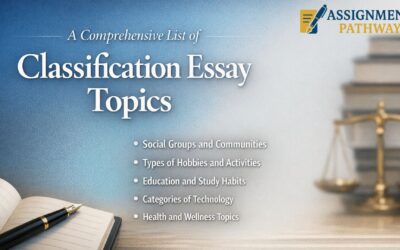How to Write a Literature Review That Impresses Professors?

Writing a literature review can feel overwhelming but it’s also one of the most important parts of your research when done well, it shows your depth of understanding, your ability to connect ideas, and your original voice. In this post, I’ll Walk you through how to write a literature review that impresses professors’ step by step, in a way that’s clear even if this is your first time. If you ever need extra help, don’t forget that Assignment Help London via Assignment Pathway is here to support you.
What Is a Literature Review and Why Professors Care?
First, let’s get clear on what a literature review is (and isn’t). A literature review surveys and analyses existing research on a topic. It doesn’t just summarize the studies, but synthesizes, critiques, and shows how they connect. Professors look for:
- Evidence you understand key concepts, debates, and theories.
- Your critical voice not just repeating what others say, but assessing strengths, limitations, gaps.
- A clear structure and logic.
- How your review sets up your own research or argument.
When your review is strong, it gives you credibility. Weak reviews too descriptive, disorganized, or superficial will likely disappoint. If you ever get stuck, Assignment Help London from Assignment Pathway can give you feedback, editing, or coaching to make your review shine.
Step 1: Define a Focused Scope & Research Question
One common mistake is trying to cover everything. You’ll lose clarity and depth that way.
- Choose a clear topic or question to frame your review (e.g. “How have recent studies measured student motivation in online education?”).
- Narrow your scope by period, methodology, population, region—to make your work manageable.
- Early readings will help you refine your question.
A focused review means you can dig deeper rather than superficially skim many papers. If narrowing topics or defining questions feels hard, Assignment Help London from Assignment Pathway can help you pick a topic that’s doable and interesting.
Step 2: Search Smartly and Collect Quality Sources
Once you have a question, it’s time to find your sources.
- Use academic databases (Google Scholar, JSTOR, your university library) and search using keywords, synonyms, and related terms.
- Read abstracts first to see whether a study is relevant, then dig deeper if it looks promising.
- Keep track of everything: author, year, methodology, main findings, theoretical lens.
Don’t just collect everything you see be selective. Use sources that are credible, relevant, and influential in your field. A literature review should synthesize and compare, not list one study after another. Whenever you feel overwhelmed by searching, Assignment Help London via Assignment Pathway can guide you to the best sources fast saving hours of wasted reading.
Step 3: Read Critically & Annotate with Purpose
Reading academic papers deeply is different from casual reading. Here’s how to do it effectively:
- Ask questions while reading: Why did authors choose this method? What are the main assumptions? Are there gaps?
- Annotate key passages, take margin notes, underline strong claims or weak arguments.
- Keep a separate critique sheet: for each paper, list strengths, weaknesses, possible contradictions.
This critical reading becomes the core material for your review. And if analysis feels too confusing, Assignment Help London from Assignment Pathway can help you break down even dense papers, so you truly understand them.
Step 4: Organize + Write with Clarity & Insight
A great review has structure and clarity. Here’s one effective way:
Introduction
- Introduce your topic and context.
- State your review scope (e.g. time frame, methodologies included).
- Present your organizing principle or thesis: what threads or themes you’ll compare.
Body– Structure the body around themes, debates, methods, or chronological trends do not source by source. This helps readers follow comparisons and contradictions. In each section:
- Summarize relevant studies (briefly).
- Compare and contrast them.
- Provide critical evaluation (strengths, limitations).
- Highlight gaps or conflicting findings.
Conclusion
- Synthesize main insights: what patterns emerge?
- Point out gaps or areas needing more work.
- If your review leads into your own research, state how your work aims to fill a gap or deepen understanding.
Throughout, keep your voice present. Don’t be a passive summarizer let your critical evaluation guide readers and if structuring your draft or writing flow feels challenging, Assignment Help London via Assignment Pathway can provide templates or coaching so your flow is smooth and logical.
Step 5: Revise, Polish & Make It Professor-Ready
Your first draft is never perfect revision is where your work really becomes impressive.
- Flow & transitions: Ensure each section connects well to the next. Use linking phrases (“however,” “on the other hand,” “similarly,” “furthermore”) to guide the reader.
- Balance critique and summary: Don’t simply praise everything or overly criticize — be fair and evidence-based.
- Clarity and readability: Remove jargon, when possible, shorten long sentences, vary sentence structure.
- Proofreading: Check grammar, punctuation, spelling.
- Citations & references: Double-check formatting (APA, MLA, Chicago, etc.).
If you want your literature review to stand out, getting a fresh eye helps. Assignment Help London from Assignment Pathway offers editing, proofreading, and expert review to elevate your final draft.
Tips That Impress Professors
- Show evolution: Trace how theories or debates develop over time or across methods.
- Be bold in critique: Don’t shy away from pointing out weak logic, missing perspectives, or methodological flaws if you back it with evidence.
- Link to your research: Even if this is just a class assignment, hint at how your own work would engage or fill gaps.
- Use signal phrases: e.g. “However, Smith (2021) fails to account for…” or “In contrast, Jones (2019) suggests…” this shows active engagement.
- Stay updated: Incorporate very recent studies if possible; this shows you’re aware of cutting-edge work.
If you ever want a review of your draft or help refining your critique, Assignment Help London at Assignment Pathway is just a click away.
Final Thoughts
Writing a literature review that impresses professors is possible even if you’re doing it for the first time. Focus on clarity, critical thinking, structure, and revision. Use steps: define your focus, search smartly, read critically, organize and draft, then revise carefully.
Whenever in doubt, Assignment Help London via Assignment Pathway is available to support you, from topic selection to final polishing. Use their expertise to boost your confidence and make your literature review truly outstanding. You’ve got this your professors are going to see you not just as a student, but as a thinker.






